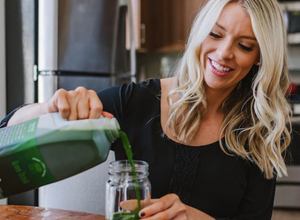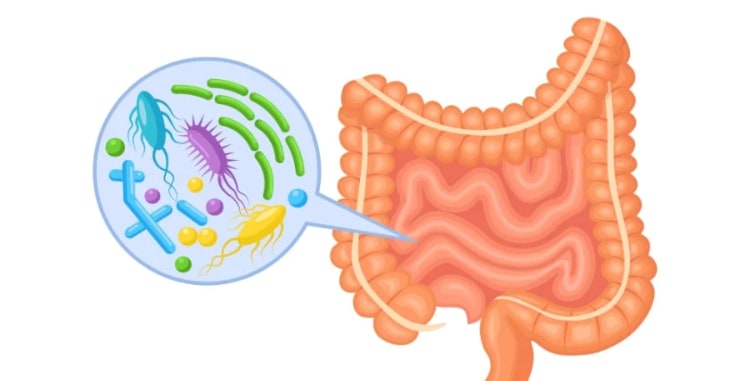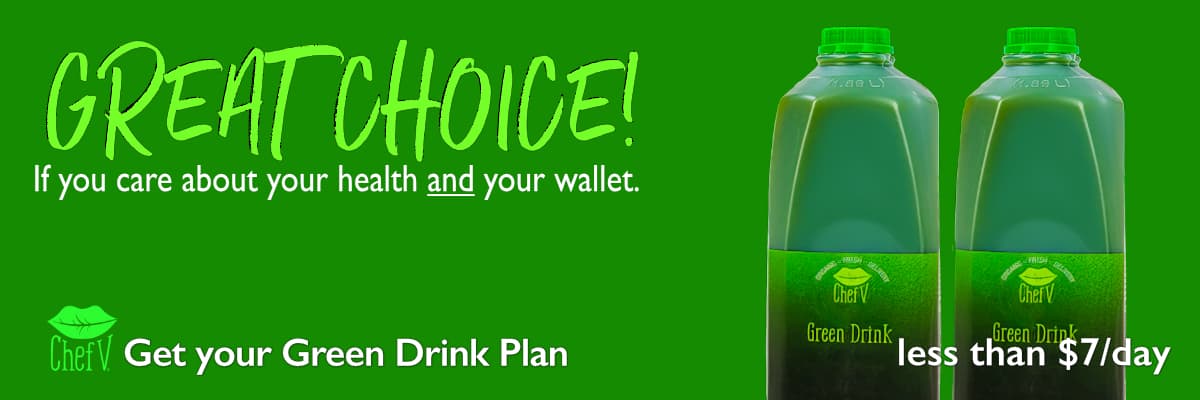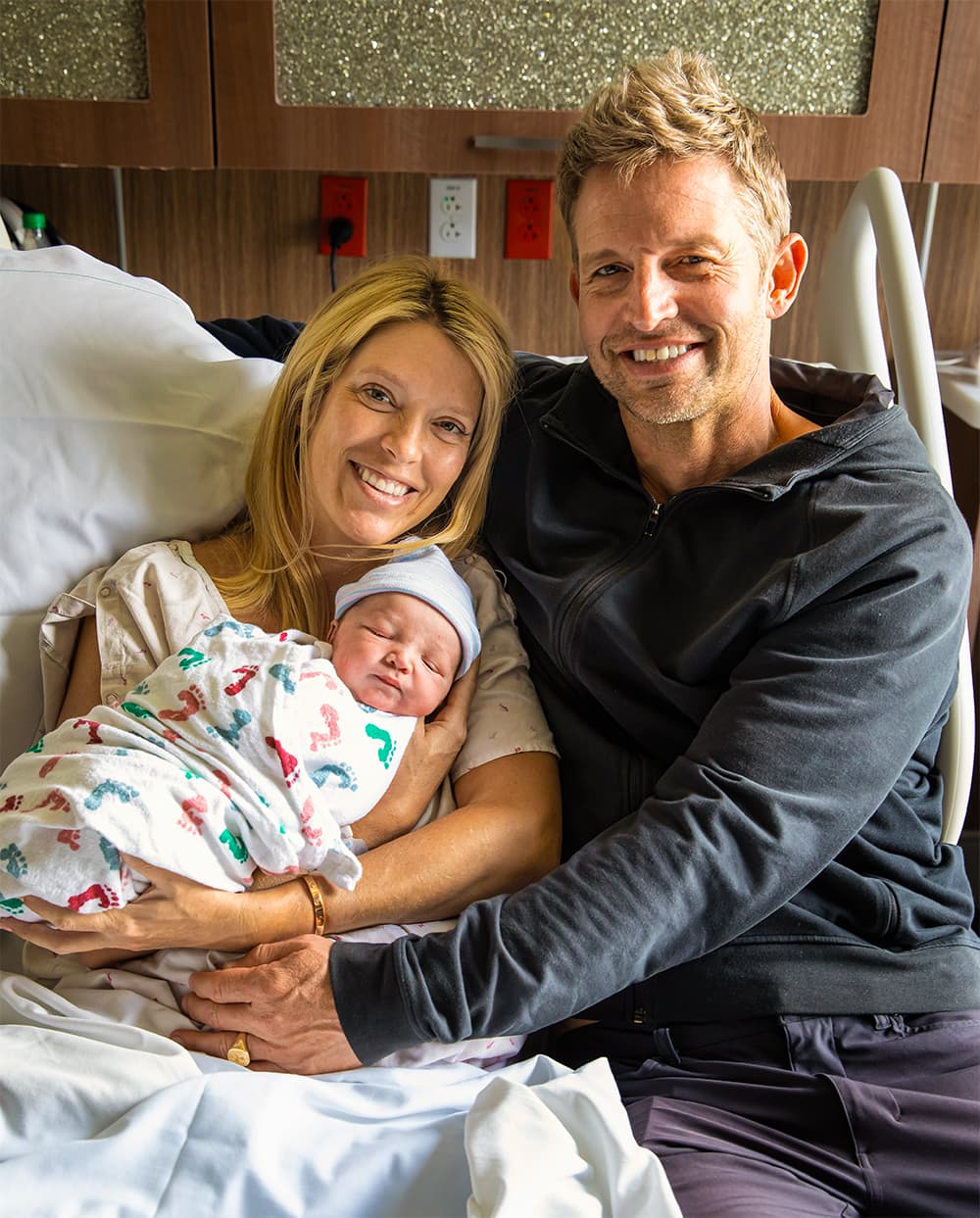
Veronica (the “V” in Chef V) is now a mommy to one big beautiful baby. Kaden Samuel Kress was born weighing almost 10 pounds! Baby, momma and daddy (Brandon) are all doing great. Now that Baby Kaden is here, can V get back to her pre-pregnancy weight by doing a brief cleanse? V reveals whether it’s safe, and provides pregnant and breastfeeding moms with other practical nutrition facts.
As I write this right after the July 4th holiday, I feel grateful to live in the USA. But after having just given birth, I’m dreaming of being a Scandinavian. You see, in Denmark, moms get 4 weeks of leave directly before the due date and then 14 weeks of leave after birth.
But when you’re running a mini Organic Green Drink delivery empire, ain’t nobody got time for that much maternity leave.
Speaking of Green Drinks, they are the cornerstone of ChefV.com cleanses (4 of them per day, available in 1-DAY, 3-DAY, and 5-DAY options), and now that my Baby Kaden is here, I thought I’d write about whether it’s safe for new moms to do a brief cleanse to get back to the weight they were before they had a watermelon in their belly.

Cleansing For Expecting & New Moms
To answer whether it’s safe to cleanse while breastfeeding or pregnant, I’m not gonna leave you with a cliffhanger. I’ll cut right to the chase. I don’t recommend cleansing while breastfeeding or pregnant. That’s because when you’re doing a cleanse, it accelerates the liver’s detoxification pathways.
Totally a good thing when you’ve been eating lots of bacon double cheeseburgers and don’t have a tiny human in your belly. But when the liver’s detoxification pathways are accelerated, trapped toxins get released into the bloodstream. Not good for a fetus or a nursing baby!
Are Green Drinks OK For New Moms?
Does that mean that pregnant and nursing moms shouldn’t have Organic Green Drink? Actually, having a Green Drink every day as a supplement to your diet is safe. I had one every day during my pregnancy. But don’t take that as medical advice. You should consult with your doctor or OBGYN.
So why is it safe to have a Green Drink while pregnant or nursing if it’s the cornerstone of the Chef V cleanse? Because the 7 green leafy veggies are nutrient dense. And you’re not doing a cleanse, you’re just having one daily green drink and eating a normal diet.
Another reason it’s not a good idea to do a cleanse, even a 1-DAY cleanse is because you’re consuming fewer calories. Although the Chef V cleanse is one of the only detox programs that supplies all the essential macronutrients (protein, fat and low-sugar carbs), it does not provide enough calories and nutrients for a developing baby.
Are Raw Juices Safe For Pregnancy?
Better For Mom & Baby’s Gut
ChefV.com prides itself on being the only company that delivers low-sugar, unpasteurized (raw) cold-blended Green Drinks made fresh. The advantage of raw and cold-blended is it’s better for your gut microbiome.
Less Harmful Bacteria Than Store Produce
Another advantage of drinking your greens from ChefV.com is that all our produce comes direct from farms. That means hardly any hands have touched the 7 certified organic green leafy veggies. In comparison, think about how many people handle or touch the produce sold at grocery stores: distributors, employees and customers. Supermarket-bought produce carries far more bacteria!
No Bugs, Literally!
Another reason Chef V Green Drinks are safe is that after we receive the produce directly from our farm suppliers, we wash it with a certified organic solution. The produce soaks in this solution and is then power-washed with cold water and inspected for bugs. This process reduces bacteria that could potentially harm your baby.
Finally, just a quick word of caution about consuming raw drinks and foods: make sure it’s from a brand or local farm that you know and trust!
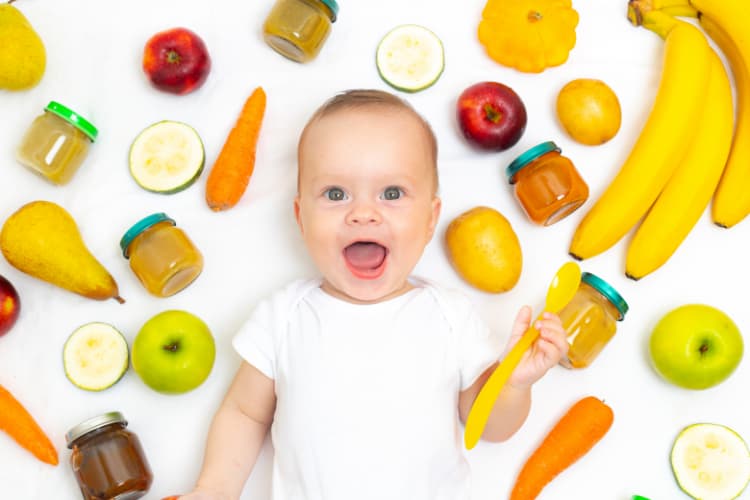
Does Eating Veggies Affect Your Baby’s Future Diet?
Obviously, eating a diet high in fruits and veggies is not only great for mom’s health, but for developing baby’s as well. But a 2020 study in Public Health Nutrition posed an interesting question: Does a mom’s diet while breastfeeding affect what the baby will eat later in life? In other words, if mom eats lots of fresh fruits and veggies, will it “train” baby’s taste buds to like them too?
According to the study authors, children breastfed during infancy consume more fruits and vegetables than formula-fed children. “This pattern is likely due, in part, to infants learning from flavors of the mother’s diet transmitted through breast milk.”
And out of nearly 1400 b mom-baby combinations, the study authors concluded that longer breastfeeding duration was associated with a higher rate of fruit and vegetable consumption when the child reached one year.
Even better, the study conclusion was the same when the children reached 6 years of age. Exposure to vegetable flavors through breast milk promotes later child vegetable consumption, the authors concluded.
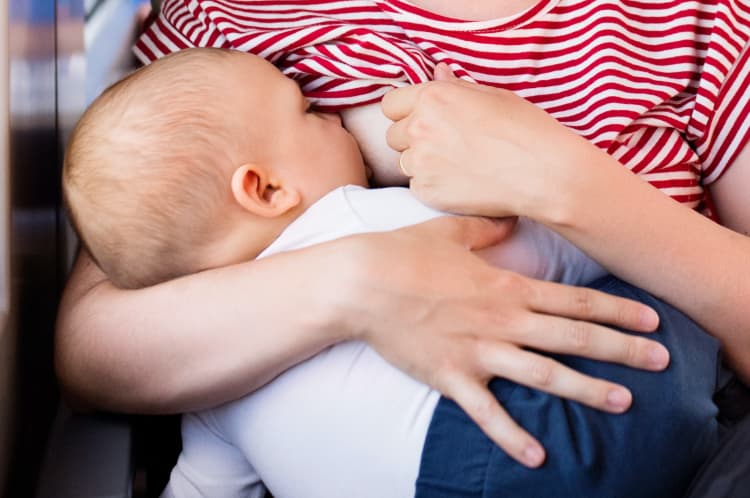
Take It Easy On The Garlic & Onions
Garlic and onions are great for stir-fry dishes but alliums, the family that garlic and onions are in, are not good for babies. In fact, alliums can make a colicky baby cry like a banshee even more.
A randomized clinical trial (the gold standard of research) from 2018 (published here) was conducted because “therapeutic diets for infantile colic lack evidence.”
So the study authors examined the effects of a low-FODMAP diet. FODMAPS stands for “Fermentable, Oligosaccharides, Disaccharides, Monosaccharides, And Polyols,” which are types of sugars. Alliums like garlic and onions are fructans, which are oligosaccharides.
The study examined breastfed infants at least 9 weeks old with colic. One group of moms went on a 10-day low-FODMAP diet while the other group ate a typical Western diet. The low-FODMAP diet was associated with a 32% reduction in “crying-fussing durations of infants with colic.”
You know how garlic and onions can make you burp? Remember that those alliums travel through the breast milk and make babies cranky!
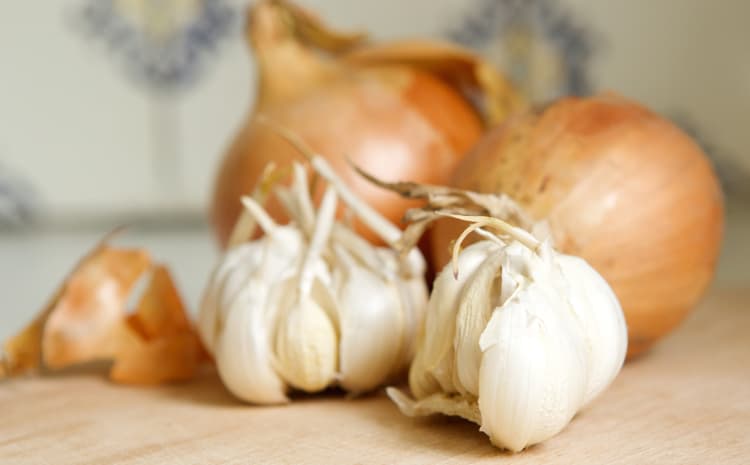
Do Breastfeeding Moms Need Nutritional Supplements?
The University of California San Francisco recommends that breastfeeding mothers take a daily multivitamin that contains 100 percent of the recommended dietary allowance (RDA). If taking a prenatal vitamin, you can continue to take it, but you’ll likely be consuming too much iron, which may cause constipation or indigestion.
A research article from a Spanish pediatric journal suggests that moms should pay special attention to getting enough thiamine (vitamin B1) and vitamins A and D, because these 3 nutrients are the ones most likely to be the most deficient in breastmilk if mom isn’t getting enough of it through the diet. The researchers also say that moms should consume at least 1800 calories a day.
All this writing about postnatal nutrition is making me hungry. I’m off to go eat and feed baby Kaden. I hope this article is useful if you’re expecting or nursing.
To your health — and baby’s too!
Love,
Veronica
Founder, ChefV.com
